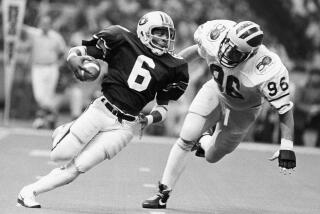Gale Sayers, Hall of Fame running back for the Chicago Bears, dies at 77
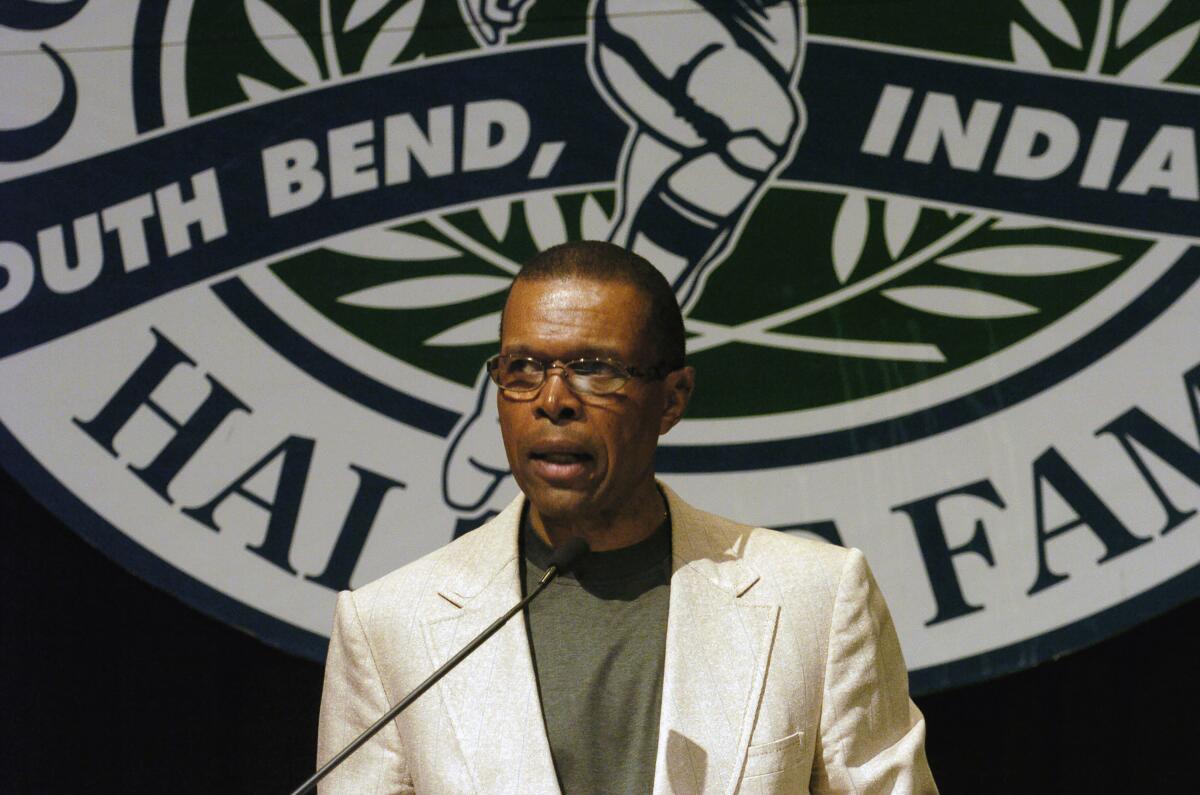
- Share via
Gale Sayers, whose brief but brilliant football career was immortalized both in grainy NFL footage and on the silver screen, has died. He was 77.
Sayers died Wednesday, according to the Pro Football Hall of Fame, which inducted him even though he played only seven seasons with the Chicago Bears before a devastating knee injury led to his retirement. He suffered from dementia in his later years.
“Gale was one of the finest men in NFL history and one of the game’s most exciting players,” NFL Commissioner Roger Goodell said. “Gale was an electrifying and elusive runner who thrilled fans every time he touched the ball. He earned his place as a first-ballot Hall of Famer.”
Nicknamed “The Kansas Comet,” Sayers was a central character in the 1971 movie “Brian’s Song,” and was played by Billy Dee Williams. The tearjerker told the story of the brotherly bond between Sayers and fellow Bears running back Brian Piccolo, played by James Caan. Their friendship transcended race.
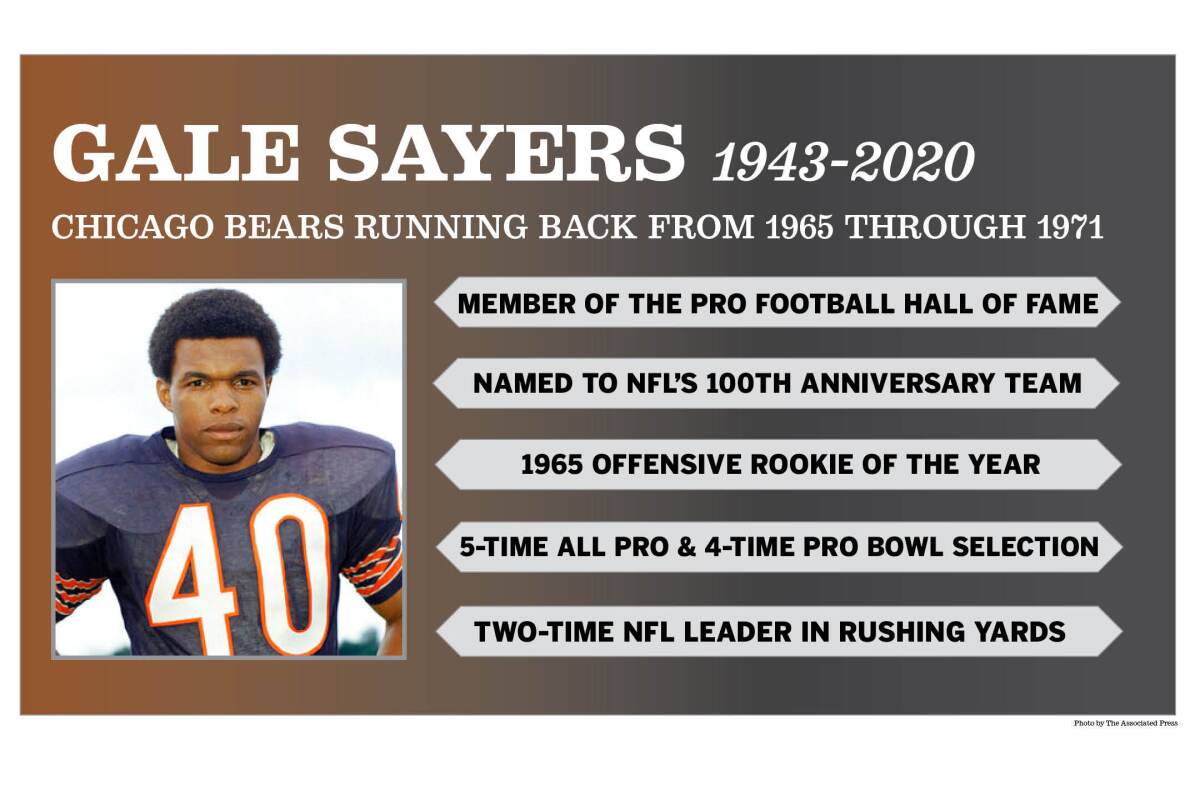
Piccolo was diagnosed with cancer in 1969, and Sayers stayed by his side in the late stages of the disease. Days before Piccolo died at age 26, Sayers received the George S. Halas Award for courage and dedicated it to his friend, saying, “You flatter me by giving me this award, but I can tell you here and now that I accept it for Brian Piccolo. I love Brian Piccolo, and I’d like all of you to love him too. Tonight, when you hit your knees, please ask God to love him.”
On Wednesday, actor Williams tweeted: “My heart is broken over the loss of my dear friend, Gale Sayers. Portraying Gale in Brian’s Song was a true honor… He was an extraordinary human being with the kindest heart.”
In a 2010 Sports Illustrated story, Sayers said more people approached him about the movie than about his football career.
“That’s fine,” he told the magazine. “I’ll never, ever forget Brian. That part of my life will be with me forever.”
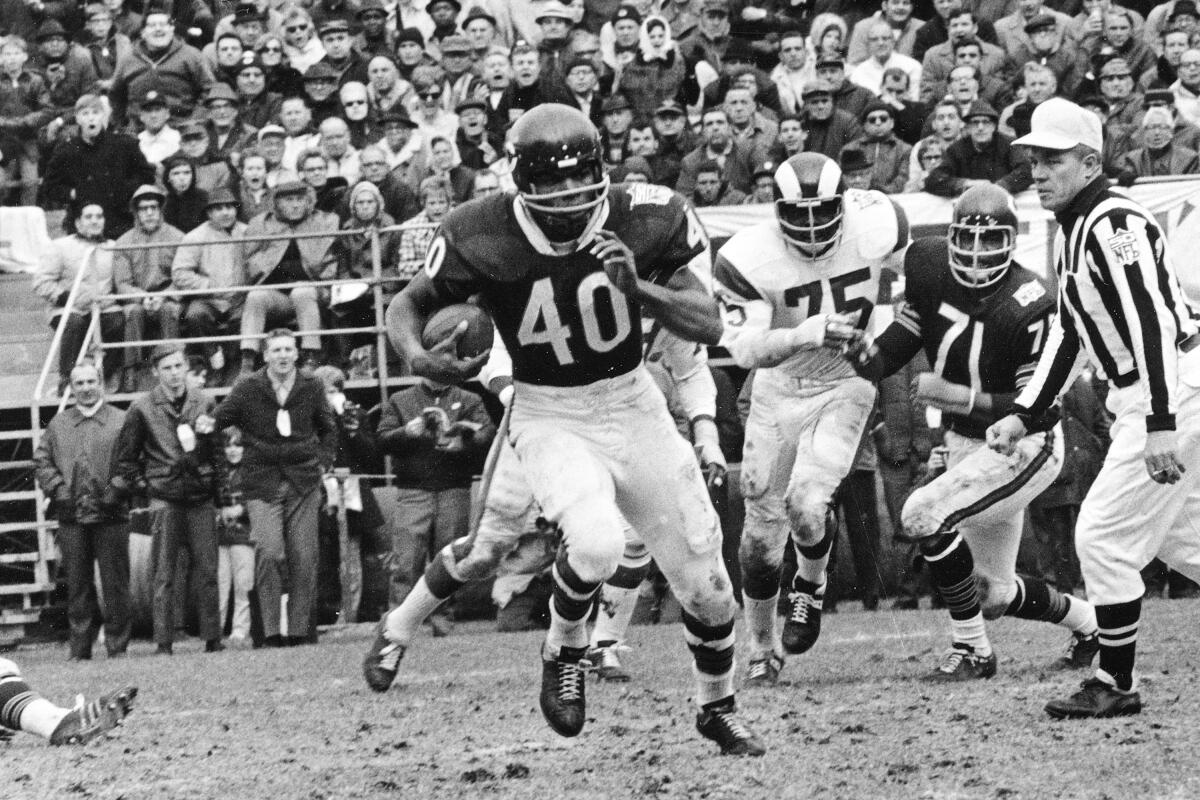
A two-time All-American at Kansas, Sayers was the fourth pick of the 1965 draft by the Bears. He was chosen one selection after Chicago took future Hall of Fame linebacker Dick Butkus at No. 3.
“We were both No. 1s, so they’re going to make it hard on us and show us the ropes and everything else,” Butkus said, according to the Associated Press. “But Gale just ran circles around everybody. Quickly, they adopted him.”
He set a league record in his first season with 22 touchdowns, earning offensive rookie of the year honors. Six of those touchdowns came in a single game against the San Francisco 49ers at Wrigley Field.
It was against the 49ers in his fourth season that Sayers suffered multiple torn ligaments in his right knee, an injury that ended his 1968 season with five games to go. On the play in question, Sayers took a pitch, ran to his left, and was hit low by San Francisco’s Kermit Alexander, who took his legs out with a shoulder to the knee. Sayers lay on the muddy turf, curled in pain.
“Not to say Kermit was intentionally doing that, but because of the way that Kermit Alexander struck Sayers inside out on his right knee, I made sure I never struck anyone in tackling on the knee joint,” Willie Lanier, Hall of Fame linebacker for the Kansas City Chiefs, told The Times on Wednesday. “Because I don’t know whether you have your foot planted. If your foot’s planted, and I take you out at the knee, it can tear everything in the joint.”
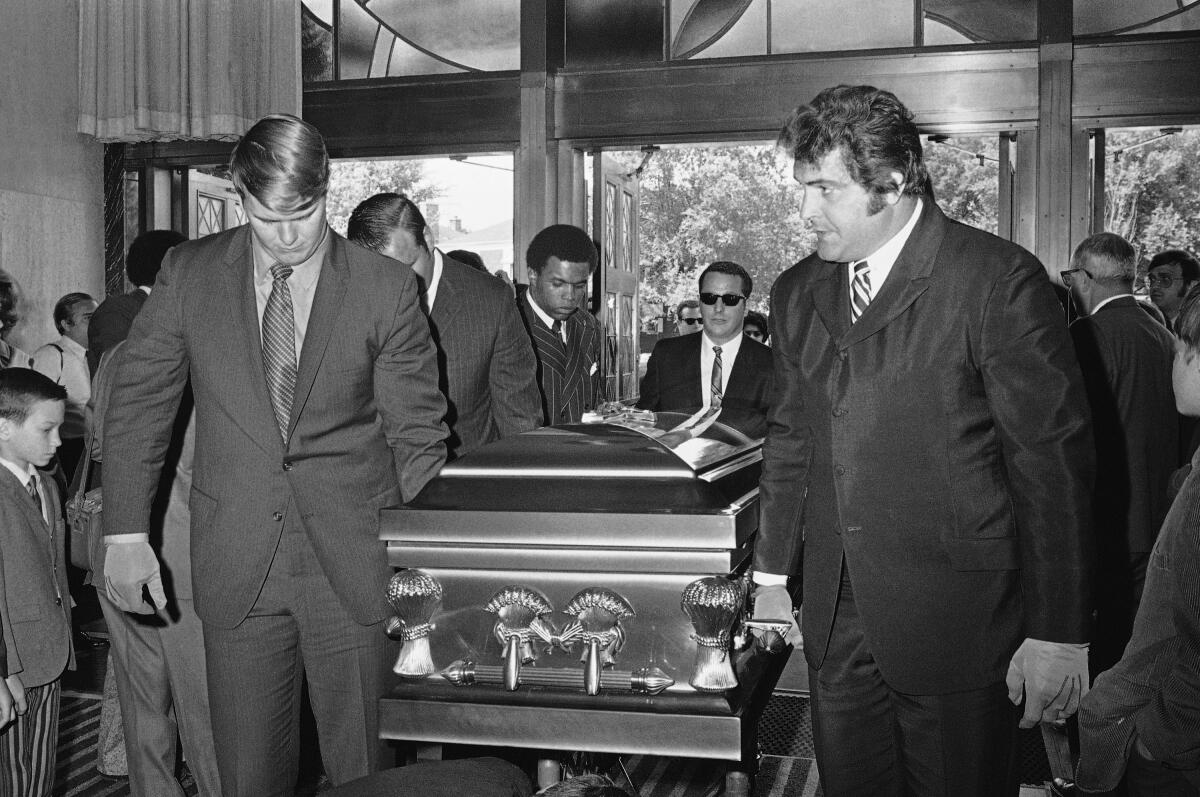
Playing on a rebuilt knee, Sayers ran for 1,032 yards in the 14-game 1969 season. But an injury to his left knee in 1970 curtailed his final two seasons, when he played in two games each year.
In 1977, at 34, Sayers became the youngest player enshrined in the Hall of Fame.
After his playing career, Sayers went on to become a stockbroker, sports administrator, businessman and philanthropist.
“I held him in the highest esteem,” said Marv Levy, a Chicago native who didn’t coach Sayers but is a Hall of Fame coach who led the Kansas City Chiefs and Buffalo Bills. “Not just as a fantastic football player, but as a great family guy, great citizen, somebody who conducted himself like he should. He was a running back with whom few have ever compared.”
More to Read
Go beyond the scoreboard
Get the latest on L.A.'s teams in the daily Sports Report newsletter.
You may occasionally receive promotional content from the Los Angeles Times.


